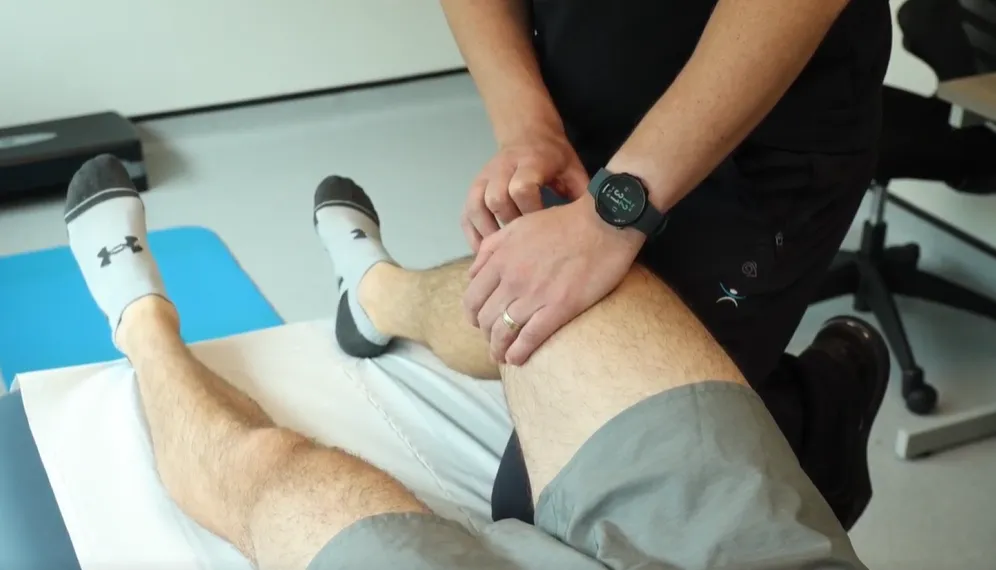A day in the life of an Advanced Practitioner

A day in the life of an Advanced Practitioner
The role as an Advanced Practitioner is essentially a clinical expert, delivering excellence in clinical care to employees within our PAM Physio Solutions contracts and maximising outcomes and thus delivering for the commercial needs of our business. The advanced practitioner leads by example, supporting and developing clinical colleagues. The advanced practitioner supports the clinical governance director. Good relationships are fostered with colleagues from all parts of PAM Physio Solutions and with external stake holders to represent our values when out and about.
Toms Journey
My role as an Advanced Practitioner (AP) involves maintaining a clinical caseload alongside delivering our non-core services, including, but not limited to, Manual Handling Training and Ergonomic Risk Assessments. The scope of the role also extends to operational development, delivering training and CPD, supporting colleagues, and auditing clinical notes and reports.
My daily routine depends on whether I’m working in clinic or remotely. On face-to-face clinic days, the diary is generally dedicated to clients, focusing on initial assessments and treatment appointments. I usually arrive at the clinic 30 minutes before my first appointment to reply to emails, prepare clinical notes and treatment plans, and set up the clinic room. These days typically involve a full diary of appointments.
Remote working days are often more varied, combining clinical appointments with non-clinical tasks. These may include delivering training for new starters, attending meetings, auditing reports and notes, and contributing to ongoing projects.
Being an Advanced Practitioner allows me to work with a wide range of people and teams. I often collaborate closely with our Operational Leads on clinician and service development, as well as with the Senior Management Team. Communication is usually via Microsoft Teams, although we occasionally meet in person.
There are many highlights to my role as an AP. Firstly, I have increased flexibility in managing my diary around appointments, which allows me to make time for other responsibilities. The work itself is also much more varied – some weeks I might be visiting different sites to deliver non-core services, while other weeks may involve attending more meetings or working independently on projects. This variety not only keeps the role engaging but also opens doors to new opportunities and broadens my scope of practice in meaningful ways.
Of course, the role comes with its challenges. Balancing a clinical caseload with non-clinical responsibilities can be tricky, and sometimes non-clinical work must be delayed to support clinical utilisation. However, when you enjoy both aspects of the role, it’s usually manageable. Flexibility and adaptability are key, especially when responding to last-minute changes that ultimately enhance service delivery for our clients.
My journey to becoming an AP began with my role at PAM as an MSK Clinician, where my diary was fully clinically utilised. With a goal of progressing into a senior role, I actively sought opportunities to support that ambition. This included assisting with new-starter inductions, such as buddying and shadowing appointments, and contributing to projects like developing new services and shadowing non-core services. These experiences helped me demonstrate the competencies and skills required during the AP interview process.
Pauline's Journey
Days are varied with a mixture of delivering additional services for example ergonomic risk assessors training which could be in different parts of the UK as well as Occupational Health Physiotherapy work So, the ability to travel, go to new places and meet people from a variety of organisations with a variety of jobs is part of the role which for me is a highlight. The advanced practitioner needs to be able to communicate with peers in our APP team and in the wider team in person face to face or virtually. Challenges are tackled by a collaborative approach and a can-do attitude with a smidgeon of pragmatism and a large dose of resilience. We all work as a team.
The pathway in my case was via a MSc in Musculoskeletal Health which opened the doors to advanced practice in the NHS initially then a move into private provider world and then the occupational health world. I enjoy the variety of work settings and the opportunities for life- long learning both personally and professionally the role in Occupational Health Physiotherapy facilitates
Top Tips for Aspiring Advanced Practitioners
- Discuss your goals with your line manager: They can help guide you toward the specific skills and experiences needed to achieve your ambitions.
- Engage with senior colleagues: Offer your support on relevant projects or initiatives to build your experience and visibility.
- Understand the role: If you enjoy a mix of clinical and non-clinical work with variety in your day-to-day, becoming an AP could be a great fit. However, speak with a member of the Senior Management Team to gain a clear understanding of the role before applying—everyone’s aspirations are different!
Summary
Becoming an Advanced Practitioner has been a rewarding step in my career, offering both professional growth and the opportunity to contribute more broadly to our service. The role brings variety, responsibility, and the chance to make a meaningful impact – not just with clients, but also within the wider team. If you’re someone who enjoys balancing clinical work with strategic and developmental responsibilities, and you’re ready to take on new challenges, then the AP role could be a great fit for you.
Would you like more information?
We hope our website provides you with the information you need about us. If you would like to know more, please get in touch.


